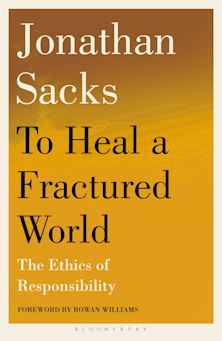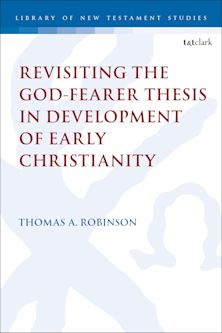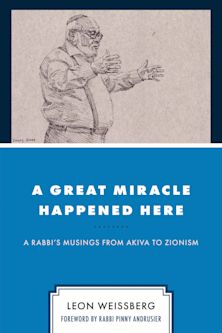- Home
- ACADEMIC
- Religious Studies
- Judaism
- Judaism, Science, and Moral Responsibility
Judaism, Science, and Moral Responsibility
Yitzhak Berger (Anthology Editor) , David Shatz (Anthology Editor) , Rivkah Teitz Blau (Contributor) , Shalom Carmy (Contributor) , Michelle Friedman (Contributor) , Basil Herring (Contributor) , Robert Pollack (Contributor) , David Shatz (Contributor) , Haim Sompolinsky (Contributor) , Moshe Halevi Spero (Contributor) , Rachel Yehuda (Contributor)
Judaism, Science, and Moral Responsibility
Yitzhak Berger (Anthology Editor) , David Shatz (Anthology Editor) , Rivkah Teitz Blau (Contributor) , Shalom Carmy (Contributor) , Michelle Friedman (Contributor) , Basil Herring (Contributor) , Robert Pollack (Contributor) , David Shatz (Contributor) , Haim Sompolinsky (Contributor) , Moshe Halevi Spero (Contributor) , Rachel Yehuda (Contributor)
You must sign in to add this item to your wishlist. Please sign in or create an account
Description
Do human beings have free will? Are they genuinely responsible for their actions? These questions have persisted all through the history of philosophy, but in the 21st century they have become defined more sharply and clearly than ever. Indeed, a vivid and mighty tension underlies today's intellectual struggles over free will. On the one hand, the rapid advances of several empirical disciplines, notably neuropsychology and genetics, threaten our instinctive affirmation that free will and moral responsibility exist. On the other hand, the depth and force of our instincts-our powerful intuition that there is free will, that there is moral responsibility-present, for most people, an almost impenetrable barrier against the sweeping denial of free will suggested by empirical research. The papers in this volume address this tension from a dual vantage point. While drawing heavily upon traditional Jewish texts and teachings, they also offer a blend of scientific, philosophical, psychological, and social insights into this most mystifying of topics. In addition, they illuminate the concept of repentance, a transformation of character that ranks in much of Jewish literature as the highest expression of free will.
Table of Contents
Chapter 2 Genetics and Morality
Chapter 3 Is Matter All that Matters?: Judaism, Freedom, and the Genetic and Neuroscientific Revolutions
Chapter 4 Use It or Lose It: On the Moral Imagination of Free Will
Chapter 5 Choice-Diminished Behavior and Religious-Communal Policy
Chapter 6 If an Abuser Cannot Control His Impulses What is the Responsibility of Other Adults in the Community?: A Response to Basil Herring
Chapter 7 Psychotherapy and Teshuvah: Parallel and Overlapping Systems for Change
Chapter 8 To Whom, To Where and to When Does One "Return" in Teshuvah?
Product details
| Published | 10 Nov 2005 |
|---|---|
| Format | Ebook (Epub & Mobi) |
| Edition | 1st |
| Extent | 316 |
| ISBN | 9781461638346 |
| Imprint | Rowman & Littlefield |
| Series | The Orthodox Forum Series |
| Publisher | Bloomsbury Publishing |



































